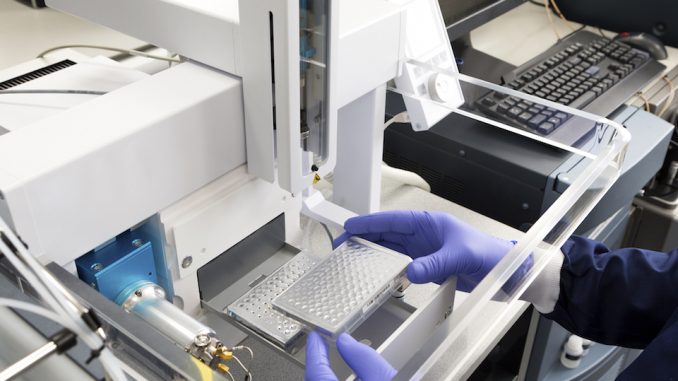
by Viral Gandhi
New Delhi : The invitro diagnostics (IVD) market in India is growing at a phenomenal pace and the country has the potential to emerge as a global manufacturing hub in the medical devices space. India is the fourth largest market for IVD devices in Asia after China, Japan and South Korea. Demand for personalized medicines, innovations in diagnostic techniques, increasing preference for point-of-care testing among the general population, a growing geriatric population base and increase in disposable incomes is driving the growth of the IVD sector in India.
Increasing proliferation of lifestyle ailments like heart disease and rising awareness of minimally invasive and non-invasive diagnostic techniques have emerged as positive triggers for positioning India as a rapidly rising market for IVD devices. The demand for clinical chemistry products is anticipated to be vastly bolstered by advances in self-monitoring methods for diabetes and patient screening techniques along with the increasing use of point-of-care systems which offer greater diagnostic accuracy. The molecular diagnostics products market is expanding rapidly as they possess higher precision and allow for speedy detection of infectious diseases and genetic disorders at an early stage of development.
Advances in surgical techniques, emerging trends in emergency diagnostics and evolutions in patient care systems point to the fact that hospital laboratories would be the key determinants in deciding the designing and marketing strategies of IVD makers. Clinical laboratories will also form an important client base for the country’s IVD sector with the need for revamped devices and testing capabilities. The rapid growth in the home healthcare segment is also set to govern the parameters on which IVD players would position their product portfolios.
Global IVD companies are expanding their operational footprint in India which presents a growing market for their products like ready-to-use test kits equipped with features like high specificity and acute diagnostic analysis. There is a growing need for advanced diagnostic products which include sequencers and molecular test analyzers for servicing the rapidly rising rural healthcare sector.
The medical devices industry in India is still in a nascent stage and its efficacies are largely restrained by a fragmented structure and its import centric nature. The Indian IVD sector comprises small and medium players who have a limited R&D budget and whose manufacturing capabilities are limited to making low-cost high-volume products like medical disposables. The demand for high-end test kits and tubes is broadly sourced by imports from global MNCs. There is an urgent need to broaden the contours of the ambitious “Make in India” program of the government of India and make it a commendable tool for bolstering the manufacturing efficacies of the Indian IVD industry and indigenize its capabilities.
The Indian government has taken positive steps to boost the capacities of the domestic IVD sector. The formulation of the Medical Devices Rule 2017, which will come into effect from January 1, 2018, is a key measure which will direct investment inflows in the sector and reduce the production cost of devices, whose benefits, in turn, can be passed on to the end user. The healthcare sector is likely to receive a flurry of investments with the government considering coming out with a new FDI policy.
The government needs to provide a level-playing field to domestic IVD manufacturers’ vis-à-vis their global peers by removing the anomalies in inverted duty structure and reducing the tariff on raw materials. Stake holders across the healthcare supply chain should be involved in conceiving policy measures and creating a viable incentive structure that will increase investment volumes in the sector and promote innovation and technical advancement. Greenfield manufacturing units and new age startups should be encouraged to scale their capabilities through extension of financial incentives in the form of tax holidays. These measures will ensure that there is a wider outreach of healthcare sector benefits, especially state-of-the art IVD products, to a larger section of the population at affordable price points.
Priority should also be placed on creating an industry-friendly regulatory structure which would be aligned with global regulatory regimes which would enforce market-compliant business practices for the domestic IVD industry.
The right mix of pro-industry policy initiatives and investment strategies can position India as a global IVD manufacturing power and leverage its latent competencies to scale the next level of growth trajectory.
(Viral Gandhi is the Chairman of Voxtur Bio Ltd)
Source: ETHealthworld.com

Leave a Reply